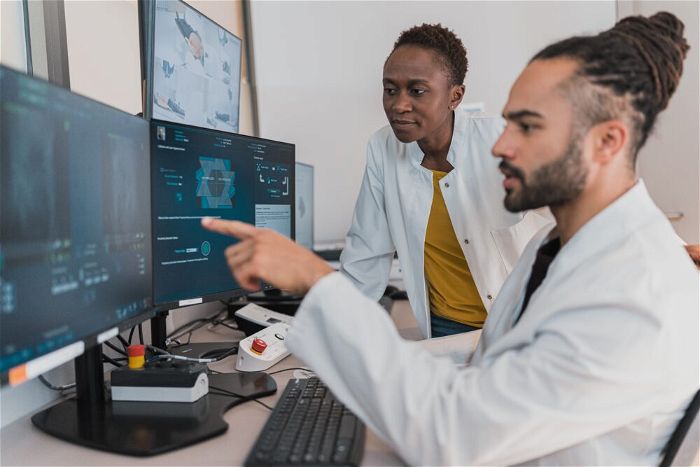
Turning Basin Labs and JFF Team Up to Invest in Employment Models That Support Workers
July 1, 2020
At a Glance
This initiative aims to identify, seed, and support employers that have found creative ways to advance worker power, improve job quality, and support career development for low-wage earners.
Turning Basin Labs and JFF are teaming up to learn about California workers’ lived experiences and perspectives on job quality, career development, and beyond. If you are a California employer that prioritizes these things, we want to hear from you. If you are a California employee, we’re interesting in learning about your work experience. Sign up to participate in an interview and receive an Amazon gift card.
COVID-19 has amplified what we already knew: Worker rights in the United States are undervalued. In an employment landscape marked by declining union membership, increased outsourcing, the rise of platform work, and eroding job quality, this external public-health shock has revealed just how little we prioritize worker well-being, especially the well-being of “1099 workers”—the independent contractors who receive 1099 forms from their business clients to report their income to the IRS.
This is clear from the rollout of unemployment insurance through the Coronavirus Aid, Relief, and Economic Security Act, also known as the CARES Act. Yes, 1099 contractors, a growing number of whom fall into the lower half of the income distribution were given access to unemployment benefits for which they usually don’t qualify. But the delays introduced by the need to rapidly invent methods to process the deluge of claims from independent contractors exposed how they fall through the cracks of our employment system on a daily basis.
When California passed Assembly Bill 5, which automatically classifies workers as employees rather than independent contractors unless an employer can prove otherwise, it opened up an important conversation about how we treat and recognize our 1099 workers. It led our organizations to ask, “Are there business models that prioritize worker well-being?”
The time is ripe for investment as states, counties, cities, nonprofits, and companies rush to innovate in the face of historic unemployment.
Turning Basin Labs and JFF have teamed up to answer that question. Over the next several months, we will conduct field research to identify employers that have found creative ways to advance worker power, improve job quality, and support career development for low-wage earners, with a particular attention to the needs of 1099 contractors. Our aim is to use this primary research to determine what’s actionable for employers nationwide and then use the research to develop incubators and accelerators that can stimulate the growth of these worker-centric employment models.
Our approach to this research is centered on the inclusion of workers themselves in a participatory, community-driven research process. Our view is that harnessing the insight of these workers is fundamental to ensuring that we identify truly equitable employment models. To answer our research questions, we have built a unique team that blends professional researchers and “worker researchers” who have the lived experience of low-wage and/or 1099 contract employment. These worker researchers from across California will lead the design and primary research processes while serving as strategic advisors on the project’s direction. Their voices, ideas, and efforts will determine where this research leads.
Although building equitable career pathways is critical to creating a more inclusive economy, we know that it’s not enough to connect workers to existing good jobs that pay a living wage and have benefits. We need to create and transform the jobs themselves, because every time someone enters a pathway out of a low-quality job, that low-quality job is filled by someone else. To build an economy that creates high-quality jobs, we must invest in new types of employment models.
We have intentionally not been prescriptive or definitive in terms of the focus, verticals, or industries we will research. Rather, this initial research is a scanning exercise to explore, understand, and follow a set of hypotheses that we hope will lead us toward specific verticals, industries, and employers to hold up as exemplars for others.
Including workers in the research and design process is critical to ensure that employment models actually fit their needs.
Now is the moment to invest in these new models. New models always emerge after a recession, and the time is ripe for investment as states, counties, cities, nonprofits, and companies rush to innovate in the face of historic unemployment. The nation’s political climate is also ripe for pushing policies that support workers, as evidenced by the recent Supreme Court ruling protecting gay and transgender workers from workplace discrimination under existing civil rights law.
But we must be intentional about the types of models we want to elevate. We can’t rely only on traditional business models that have a singular focus on profit maximization—it’s time to understand how we build an economy that works for workers. We also can’t assume that technology will be the silver bullet and that workers just need to assimilate to new technology platforms. The future of work should not only be a debate about how technology will affect us—it should be about the future of workers, and the future of work from the perspective of workers. Including workers in the research and design process is critical to ensuring that employment models actually fit their needs. Worker voices must be heard.
As we begin to develop this work, we are conscious that we don’t have all the answers. There are others trying to answer similar questions related to workers, and so we are seeking allies who want to collaborate—including worker researchers, advisors, and partners at all levels—in order to help make this project a rich and productive exercise. Please contact us at stephen@turningbasinlabs.com or aschmitt@jff.org if you’re interested in participating. We look forward to embarking on this journey together.
Related Content

Inclusive Economic Development: Good for Growth and Good for Communities
Many communities are embracing “inclusive economic development” as a way to address inequity that persists even as the economy grows. In an effort to spark a national conversation about the conditions needed to achieve inclusive…

Transforming Systems to Achieve Better Careers for Californians: Balanced Stakeholder Relationships Lead to Innovative Workforce Development Strategies
Millions of working Californians are unable to fulfill their families’ basic needs. Higher-paying jobs that require specialized skills are beyond their reach, and many entry-level jobs are likely to be automated by 2022, so there’s…

Workforce Development & Regional Economies
Regional workforce development builds capacity and shapes practices to help more people and communities succeed. Our federal and regional workforce development systems have the potential to promote strong economies and expand access to quality jobs.…